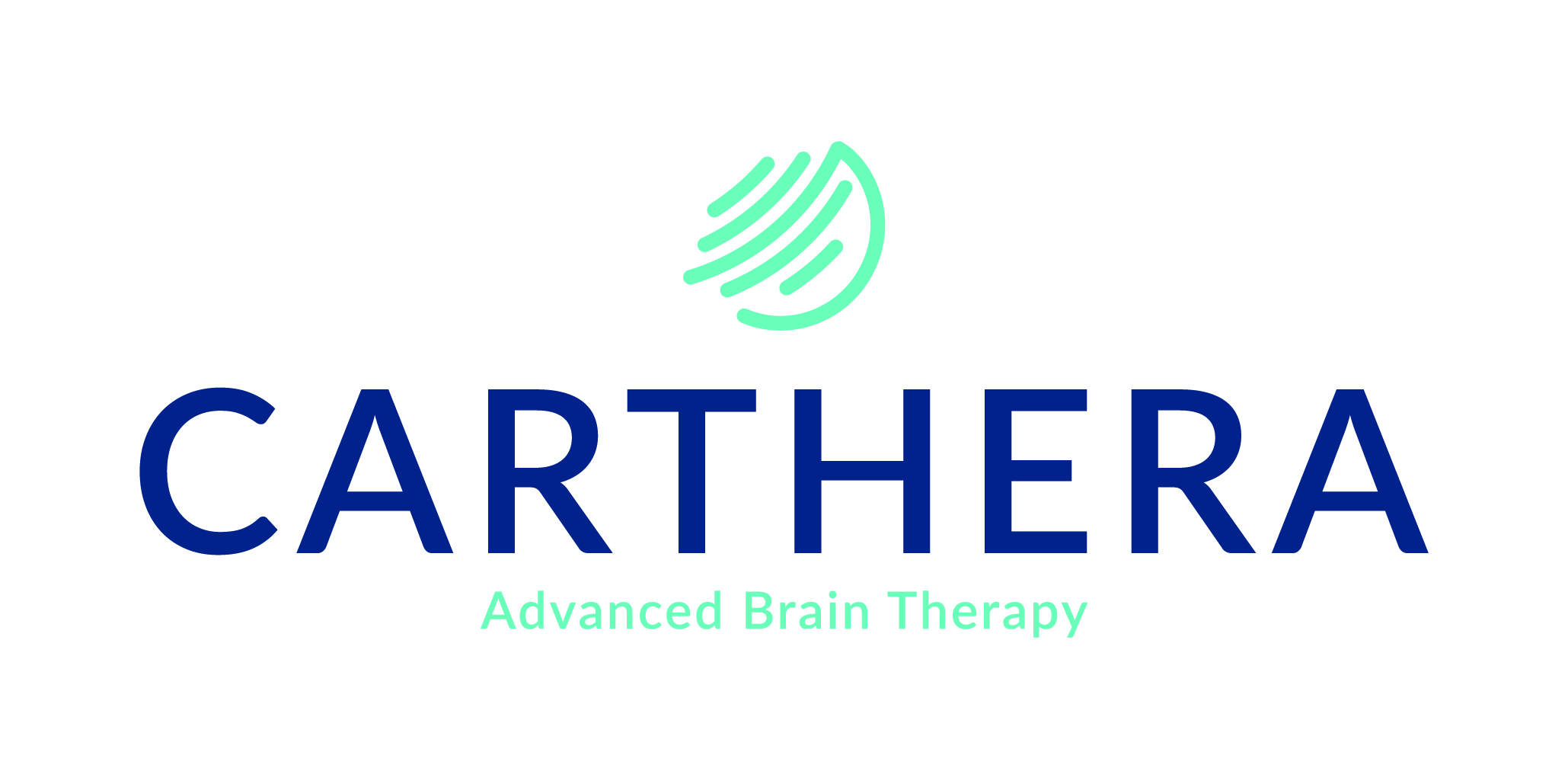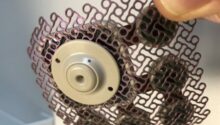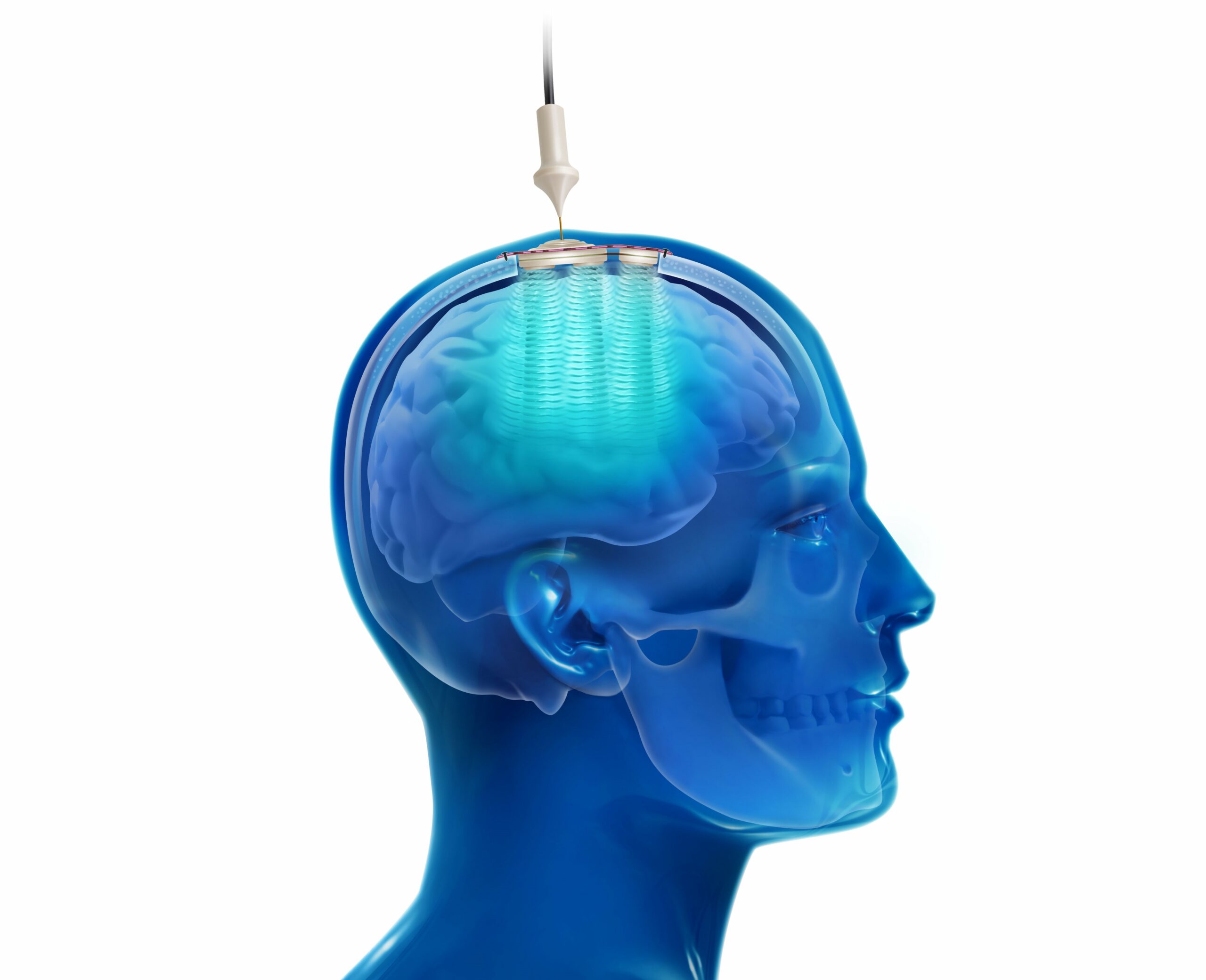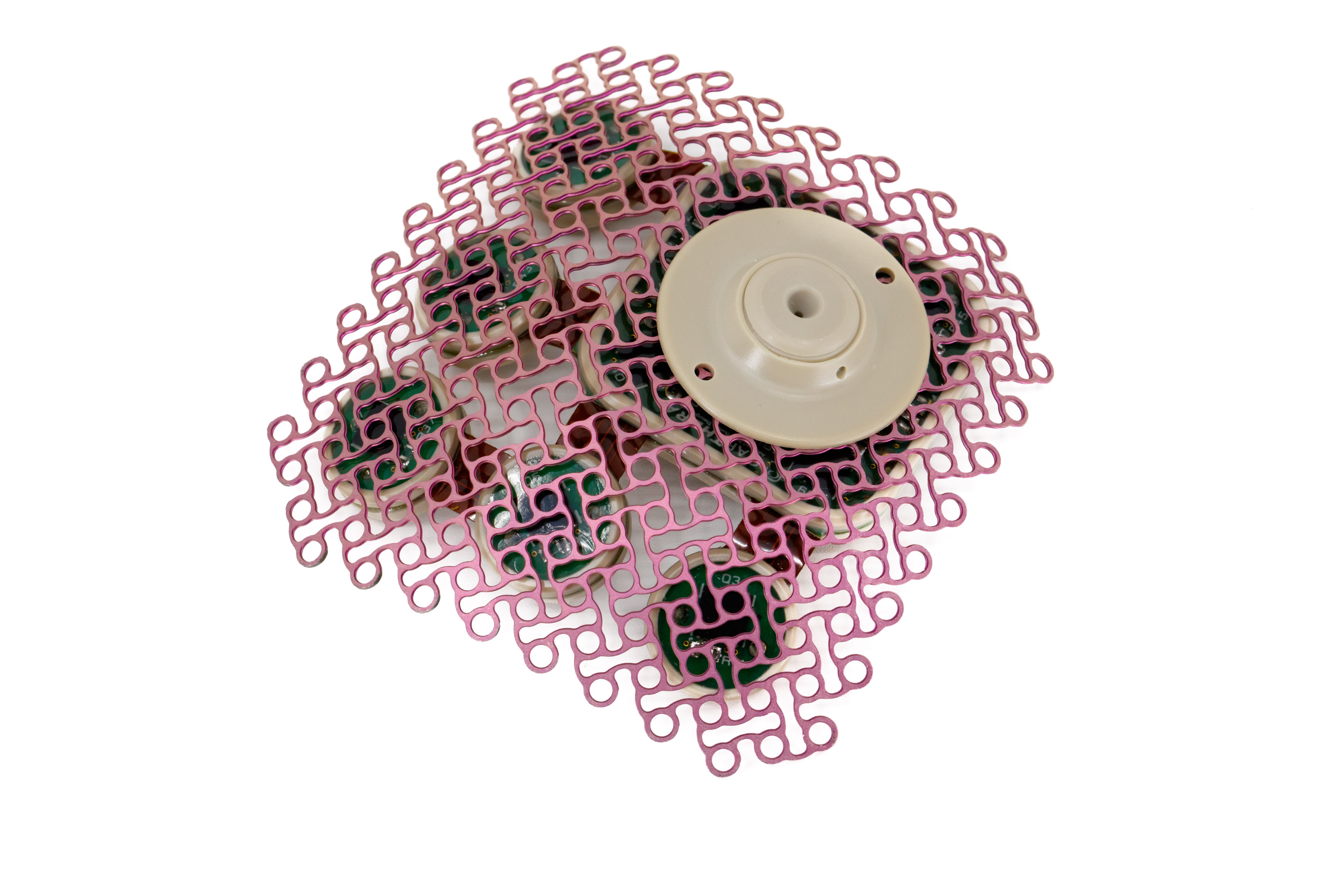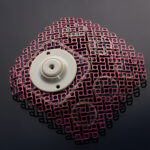Share this post:
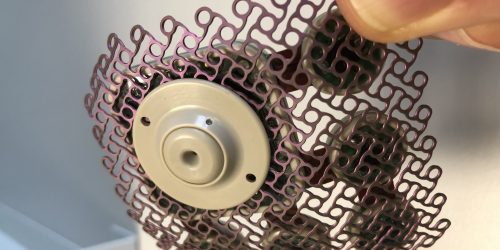
Paris, France, January 15, 2019 – CarThera, a French company that designs and develops innovative ultrasound-based medical devices to treat brain disorders, today announces it has secured approval from the French National Agency for Medicines and Health Products Safety (ANSM) to start a Phase I-II clinical trial of its SonoCloud-9 device in the treatment of recurrent glioblastoma.
The SonoCloud-9 (NCT 03744026) trial is an open-label, dose escalation study to evaluate the safety and efficacy of temporarily opening the blood-brain barrier (BBB) in patients with recurrent glioblastoma, who are eligible for carboplatin chemotherapy, by using the implantable SonoCloud-9 device to emit low-intensity pulsed ultrasound. The study will be followed by an extension phase. Twenty patients will be enrolled over a one-year period. The trial will take place in two hospitals in France, Pitié Salpêtrière in Paris and Pierre Wertheimer in Lyon. Following regulatory approval in the US, it will be extended to the MD Anderson Cancer Center in Houston and Northwestern Memorial Hospital in Chicago. Local, temporary opening of the BBB using short-duration, low-intensity pulsed ultrasound delivered in a controlled manner will make it easier for carboplatin to cross into the brain tissue, enabling better chemotherapy penetration of the tumor infiltration zone for greater efficacy.
“Lack of brain vessel permeability limits the impact of chemotherapy for glioblastoma,” said Dr. Ahmed Idbaih, principal investigator and neuro-oncologist at Pitié-Salpêtrière hospital (part of the Paris Public Hospitals system, AP-HP). “Combined with the SonoCloud-9 device, chemotherapy could be much more effective, ultimately improving the treatment of glioblastoma.”
The results of a clinical trial conducted by AP-HP have already shown that it was possible to safely and repeatedly open the BBB in these patients using the SonoCloud device, on a temporary basis, prior to treatment with carboplatin (A. Carpentier, Science Translational Medicine, 2016). Preliminary analysis of the data from this trial also showed efficacy in terms of prolonging overall survival in patients in whom the BBB was opened. These encouraging results led CarThera to pursue using ultrasound to disrupt the BBB in larger regions of the brain to further improve the efficacy of this new method of treatment.
“This approval is a crucial step as it will allow patients with recurrent glioblastoma, for whom there are currently few treatment options, to benefit from increased penetration of the chemotherapeutic agent throughout the area affected by the tumor,” said Professor Alexandre Carpentier, lead neurosurgeon at Pitié-Salpêtrière hospital, inventor of the SonoCloud device and CarThera’s founder.
Glioblastoma is the most frequent and the most aggressive type of brain tumor. It can occur at any age, but 70% of cases are diagnosed in patients aged between 45 and 70. With an incidence of 2 to 5 cases per 100,000 people in North America and Europe, it accounts for more than 50% of primary malignant brain tumors. There are an estimated 250,000 new cases of glioblastoma worldwide every year. It is one of the most aggressive types of brain tumor, with a poor prognosis. Throughout the world, there are around 200,000 deaths from glioblastoma every year, including nearly 15,000 in Europe and 9,000 in the USA. Current treatment consists of surgery to remove as much of the tumor as possible followed by a combination of radiotherapy and temozolomide chemotherapy. Patients with tumor recurrence can have repeat surgery and are offered second-line chemotherapy, although this can be of little benefit.
“In light of the highly promising initial results seen in the latest clinical trial, we are eager to begin the SonoCloud-9 study to evaluate the effect of enlarged opening of the BBB prior to administration of carboplatin,” said Frédéric Sottilini, CEO of CarThera. “This trial paves the way for effective chemotherapies that to date have been used infrequently in glioblastoma, owing to their limited diffusion into the brain, or for other combinations such as antibodies or kinase inhibitors, in a variety of brain disorders.”
The SonoCloud technology is appropriate for the treatment of brain diseases in general. Oncology indications are the company’s primary target but investigations are ongoing in other conditions, including neurodegenerative diseases and Alzheimer’s disease in particular.
About SonoCloud
SonoCloud® is an innovative medical device developed by CarThera. It is capable of emitting ultrasound to temporarily increase the permeability of the blood vessels in the brain. Invented by Pr. Alexandre Carpentier, SonoCloud is an implant inserted into the skull and activated prior to chemotherapy. Several minutes of low-intensity ultrasound opens the blood brain barrier for six hours and increases the concentration of therapeutic molecules in the brain.
About CarThera
CarThera designs and develops innovative therapeutic ultrasound-based medical devices for treating brain disorders. The company is a spin-off from AP-HP, Greater Paris University Hospitals, the largest hospital group in Europe, and Sorbonne University. CarThera leverages the inventions of Professor Alexandre Carpentier, a neurosurgeon at AP-HP who has achieved worldwide recognition for his innovative developments in treating brain disorders. CarThera developed SonoCloud, an intracranial ultrasound implant that temporarily opens the blood-brain barrier (BBB).
Founded in 2010 by Professor Alexandre Carpentier, CarThera is based at the Brain and Spine Institute (Institut du Cerveau et de la Moelle épinière, ICM) in Paris, France, and has laboratories at the Bioparc Laënnec business incubator in Lyon, France. The company, led by Frederic Sottilini (CEO), works closely with the Laboratory of Therapeutic Applications of Ultrasound (Laboratoire Thérapie et Applications Ultrasonores, LabTAU, INSERM) in Lyon. Since its inception, the company has received support from the APHP, Sorbonne University, the ANR (Nationale Research Agency), France’s Ministry of Research, the Ile-de-France region, the Bpifrance public investment bank, the Medicen Paris Region and Lyonbiopôle clusters.

